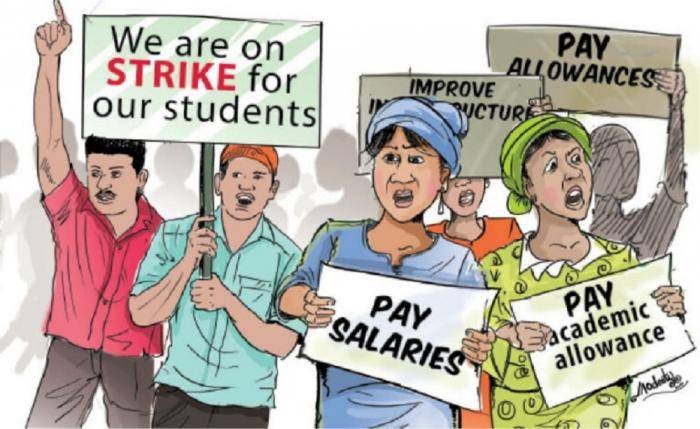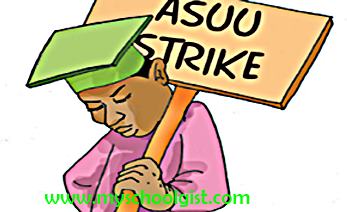
The Academic Staff Union of Universities demands empathy from the general public including the students to support the ongoing strike.
However, if I may ask, was the opinion of students sought before ASUU embarked on this nationwide strike? True, some students support ASUU’s actions while some are totally against it. But throwing millions of students out of classroom does nobody any good.
While the lecturers have ample time to engage in private practice, other ventures and even research, the majority of their students are doing nothing while the strike lasts. Now, whenever the strike is eventually called off, the students come back blank and the same old story of “half-baked” graduates continues. Obviously, then, the students lose more than they gain for the duration of the strike.
Again, by making all universities go on a nationwide strike, ASUU is practically placing all universities in Nigeria at par without considering their diachronic and synchronic relevance at this point in Nigeria’s development. It is difficult to make, for example, the University of Lagos, Akoka at par with a recently established university all in the name of funding. One of the ripple effects of such an action is that it drags some universities down from the pedestal in which they are placed.
Now, these older universities have to struggle to regain their lofty positions after the strike while it distorts the efforts of the new universities to take off on a full scale. The establishment of private universities all the more makes ASUU’s position and insistence on strike redundant. Gone are the days when ASUU could shake the entire nation.
Those that could not afford to send their children abroad now endeavour to send them to private universities because they guarantee stability and time management and it is only a matter of time before they overtake public universities if these incessant strikes continue. This only leaves majority of the masses at the mercy of ASUU. It is not fair on the people who desire university education.
To me, ASUU’s demands seem contradictory. It makes a general claim that the 2009 agreement has not been faithfully implemented. Now, it wants a full implementation before calling off its strike. If payment of lecturers’ allowances is not a top priority, I think government is magnanimous enough to have come out with a position that N100bn will start as a stimulating package for all universities’ infrastructure development (though they’ve not told us when more funds are expected) and N30bn for their allowances. Taking account of TETfund and monthly subventions to universities, it behoves ASUU to ensure prudent and resourceful management of funds allocated to universities. Rather than being at loggerheads with government all the time, ASUU should take on the management of their various universities as regards how internally generated funds are spent.
If ASUU is serious about revitalizing the nation’s universities, as a major stakeholder, it should take the management of universities to task on building world-class universities through judicious use of TETfund interventions and other grants. Everything does not have to come from the government. What is the essence of improved funding when they are mismanaged and wasted?
Another thing that I find disturbing is the issue of university autonomy being championed by ASUU. When universities’ Governing Councils were dissolved a few years back, ASUU raised a dust over the issue clamouring for reinstatement of councils and autonomy for federal and state universities. By granting autonomy to universities, ASUU wants the Federal Government to hands off its interference with its administration. To a layman, this argument seems illogical and meaningless. While ASUU embarks on a strike forcing government to fund universities, it still embarks on a strike forcing government to hands off its investment. A complete autonomy for universities is like telling government to remove its hands 100 per cent from universities’ administration while still holding on to the money government has for its universities.
This is contradictory on the part of ASUU. If it demands total autonomy, then each university should be allowed to develop at its own pace and reach for international standards without being dragged into unnecessary strike actions.
Asking for university autonomy while still clinging onto the hegemony of ASUU to ground universities nationwide is not in the best interest of Nigerian universities.




